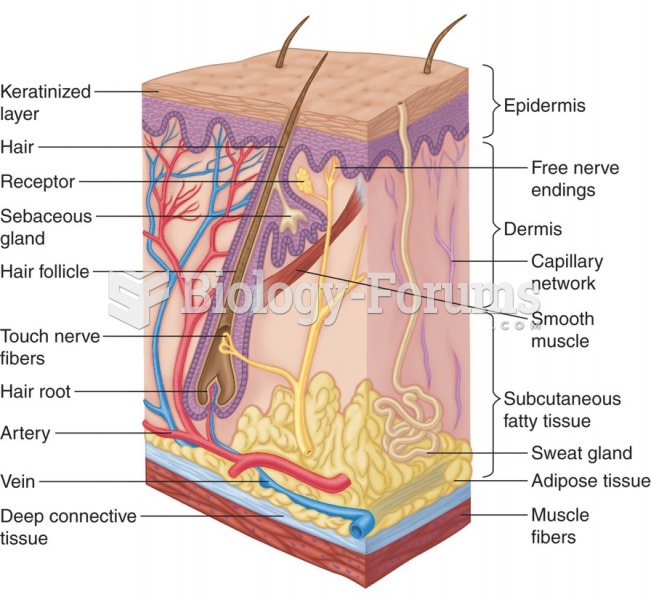|
|
|
Alzheimer's disease affects only about 10% of people older than 65 years of age. Most forms of decreased mental function and dementia are caused by disuse (letting the mind get lazy).
The FDA recognizes 118 routes of administration.
More than 30% of American adults, and about 12% of children utilize health care approaches that were developed outside of conventional medicine.
Cancer has been around as long as humankind, but only in the second half of the twentieth century did the number of cancer cases explode.
Anesthesia awareness is a potentially disturbing adverse effect wherein patients who have been paralyzed with muscle relaxants may awaken. They may be aware of their surroundings but unable to communicate or move. Neurologic monitoring equipment that helps to more closely check the patient's anesthesia stages is now available to avoid the occurrence of anesthesia awareness.







